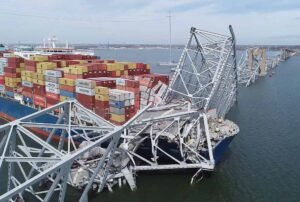{source}[[span style=”float: right; border-left: 1px solid gray; border-bottom: 1px solid gray; margin: 0pt 0pt 5px 5px; padding: 0pt 0pt 0pt 5px;width:250px;”]][[h3]]Related Articles[[/h3]][[br /]]{loadposition related}[[/span]]{/source}
August 6, 2010; Source: Alaska Journal of Commerce | It’s an Alaska nonprofit story, but the name “Palin” is nowhere to be found. No surprise, however, to find a small connection to former Alaska senator Ted Stevens, whose familial tendency to muck around with nonprofits, foundations, and his own family’s interests has been a source of public attention for some time.
This story involves the Community Development Quota program, created by Congress in 1992, to boost economic development in 65 fishing-dependent villages of Western Alaska. Six CDA-designated nonprofits received rights to a designated percentage of some 36 species in the Bering Sea Aleutian Islands fisheries (predominantly pollock, crab, and halibut). One group, the Coastal Villages Region Fund, has 100 percent ownership of its fishing and processing assets.
Sign up for our free newsletters
Subscribe to NPQ's newsletters to have our top stories delivered directly to your inbox.
By signing up, you agree to our privacy policy and terms of use, and to receive messages from NPQ and our partners.
The CDQ groups, serving these low-income fishing communities, pay their executives comfortably. The two top guys at CVRF were paid just under $4 million in salaries, bonuses, benefits, and fees between 2006 and 2009, $2.7 million for the CEO alone. CVRF’s COO is a former aide to Ted Stevens, who left the senator’s office in 1998—after Stevens got the American Fisheries Act passed—to become executive director of the industry’s trade association, At-Sea Processors. He then joined with the senator’s son, then-state senator Ben Stevens, to lobby for Commerce Department grants appropriated by papa Stevens to Alaskan seafood processors, earning substantial lobbying fees from CDQ groups before officially joining CVRF.
Don’t think the other CDQ groups don’t pay well too, but none are in CVRF’s executive compensation league. On the other hand, some CDQ nonprofits have other ways of paying. At the Central Bering Sea Fishermen’s Association, the executive director, its former executive director, and four board members also personally controlled 37.5 percent of the vessels delivering halibut to the CDQ halibut co-op and receiveed more than 55 percent of the payments in 2008.
What’s the appropriate compensation standard for economic development nonprofits serving the poor fishing communities of Western Alaska? How high or low is subject to debate, but conflicts of interest and inside political connections to disgraced political leaders shouldn’t be part of the compensation packages.—Rick Cohen












